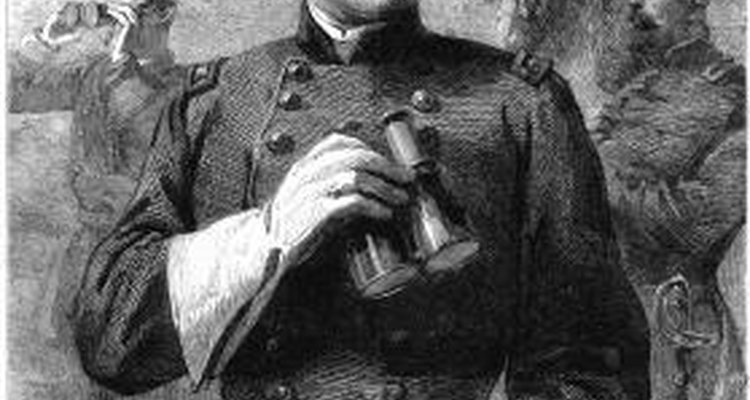
Within any society, the roles of men and women are specifically defined and socially expected. During the 1800s, American men were presumed to be breadwinners for their families, leaders within their communities, soldiers for war and settlers of the Western frontier. Major social factors shaped the roles of men in the 1800s. These included the Industrial Revolution, slavery, Westward expansion, the railroad system, the Victorian era and various wars.
Men's Labor
Throughout the 1800s, American society was largely agrarian-based in the South and somewhat industrialized in the North. Men from all parts of the country were expected to provide for their families. Most men were farmers, field hands and skilled craftsmen. Trading, trapping, fishing, metalworking and selling merchandise were other common 19th century occupations for men. Many men were employed as miners in the Midwest and Western frontier during the second half of the 19th century. When industrialization began to become more widespread within American society, many men took manufacturing and factory jobs.
Civil Participation
Men were expected to govern their society and their homes during the 1800s. Various roles such as politician, law enforcer, manager, professor, author, and military commander were available for many men within early American society. Religion played a prominent role in 19th century America, and priests and pastors were also leaders within their communities. Biblical ethics and values were the basis for the expectation that men would govern their wives and children within their homes and provide for their care and protection.
Protection of the Family
Life during the 1800s was harsh, and there were many hazards that could wipe out a community or a family unit. Blizzards, floods, droughts, famine, wild beasts and warfare threatened the very existence of many communities and rural dwellers of 19th century America. Outlaws and bandits posed hazards for families who settled out West, and slave revolts terrified many people in the South before the institution came to an end. Men had to provide for their families, and society required them to protect them as well. Conflicts such as the Civil War threatened to tear apart the country, and men were expected to become soldiers in order to protect their way of life, their communities and their families.
Explorers and Settlers
Moving a family to the Western frontier was not an easy task to accomplish, and men who were brave enough to make this trek were expected to be strong and courageous because of the dangers that were posed by this type of journey. Explorers and settlers were primarily men who opened up the Western frontier. Men invented new technologies that drastically changed the lives of millions of people. With the creation and expansion of the rail system, people could settle the West with greater efficiency. Roles such as philosopher, inventor, discoverer and doctor were but a few of the fields that men dominated during the 1800s.
Related Articles

Traditional Roles of Men & Women in ...

What Were the Traditional Gender Roles ...

The Significance of Earrings on Men

The History of Steel Toe Boots
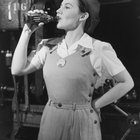
Women's Clothes in 1943

History of Military Hats
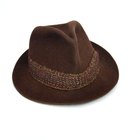
1950s Gangster Clothes
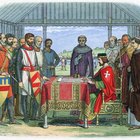
Kids' Clothing During the Medieval ...

The Pros & Cons of Gender Roles
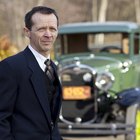
Men's Clothes & Styles in the 1920s & ...

What Are the Pros & Cons of Being a ...

What Clothes Do They Wear in Israel?
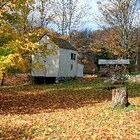
About Family Life in Colonial New Jersey

Differences Between Modern & ...

The Essenes Diet

About Jumano Indian Clothing
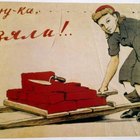
Husband & Wife Relationships in the ...
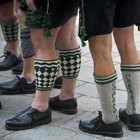
What Kind of Clothing Do People Wear in ...
Free Things to Do in Fredericksburg, ...

The History of Skechers Shoes
References
- George Mason University: Exploring U.S. History -- Women and Equality
- Education Helper: Going to Work in the 1800s
- Life with Father -- Parenthood and Masculinity in the 19th Century American North; Stephen M. Frank
- Solomon Schecter Day School: Colonial Daily Life
- Ohio State University: Manifest Destiny and Westward Expansion
- A Companion to 19th Century America; William Barney
- Reforming Men and Women -- Gender in the Antebellum City; Bruce Dorsey
Resources
- Public Broadcasting Service: Andrew Carnegie
- Public Broadcasting Service: Program One: "Gold Mountain Dreams"
- Walter Nelson: Manners for the Victorian Gentleman
- Environmental Graffiti: Lumberjacks of the 19th Century: The Toughest Men in History
- University of Pennsylvania: The Early 19th Century American Medical Worldview
- Public Broadcasting Service: Daily Life in the Colonies
Writer Bio
Steven Miller earned his associate degree in the field of education and is currently continuing his education at Ohio Dominican University. A freelance writer since 2010, Miller enjoys gaining valuable experience and growing as a writer.
Photo Credits
Photos.com/Photos.com/Getty Images